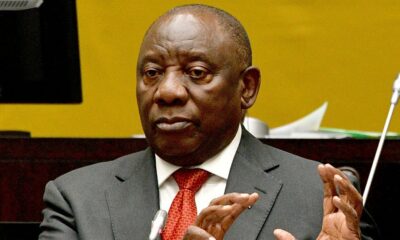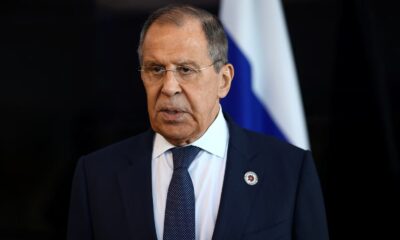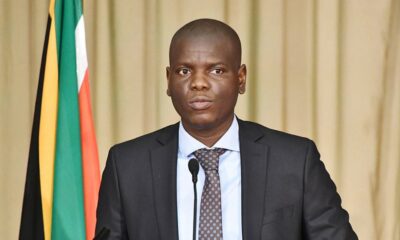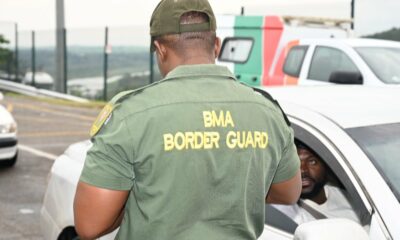News
South Africa Sharpens Its New Economic Diplomacy as Global Tensions Rise
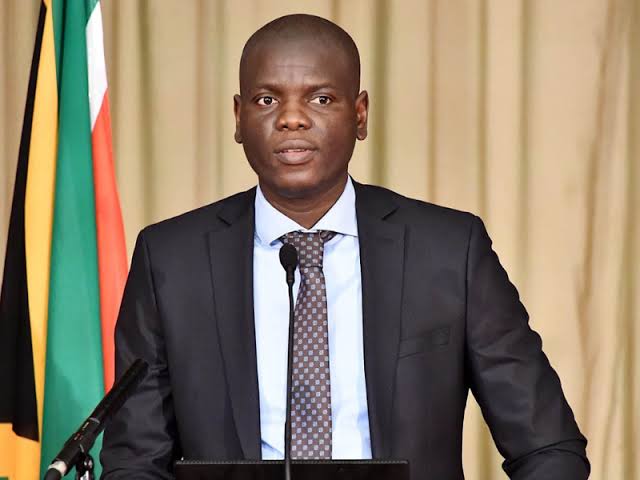
At the Edge of a Historic G20, South Africa Rewrites Its Playbook
As Joburg braces to host the first G20 Leaders’ Summit ever held on African soil, the country’s foreign policy machinery is in high gear. And at the centre of it is a quiet but deliberate shift in how South Africa plans to protect, and grow, its economic future.
On Tuesday night in Sandton, International Relations Minister Ronald Lamola told a gathering of South African companies operating across the continent that government is “fine-tuning” a new economic diplomacy strategy. The timing is no coincidence: global politics is increasingly volatile, and South Africa wants to make sure it doesn’t get caught in the crossfire.
A Global Landscape Full of Cracks
Lamola did not mince his words.
The world, he said, is splintering into competing blocs, with rising trade tensions, mineral races, tech wars, and shifting alliances redrawing the geopolitical map. For a country like South Africa, heavily linked to global markets and reliant on foreign investment, the stakes are enormous.
“We are hosting the G20 at a unique moment,” he told industry leaders. “Widening geopolitical fractures necessitate that we strengthen our focus on economic diplomacy.”
This is not simply a foreign policy tweak. It is a survival strategy.
Why South Africa Is Rethinking Everything
Lamola’s message was clear: South Africa’s economic diplomacy must change, and fast.
Gone are the days when diplomacy meant ceremonial visits and trade missions. Today, it must be bold, strategic and unapologetically aligned with the country’s development agenda.
“In a world defined by competition for markets, minerals, technology, skills and investment, economic diplomacy can no longer be optional,” he said. “It is indispensable.”
Government’s goal is to position South Africa to weather global uncertainty while helping local industries expand their continental footprint. That means securing investment, deepening regional value chains and defending African interests on the global stage.
Africa First, But Not Africa Alone
Lamola reinforced something that has been a quiet throughline in South Africa’s foreign policy for decades:
Africa is home. Africa is destiny.
From Dakar to Dar es Salaam, African markets are rapidly reshaping themselves, with young populations, mineral wealth and accelerating urbanisation. The minister pointed out that by 2030, African youth will make up more than 40% of the global youth population.
“We hold the minerals that will power the global energy transition,” he said, listing countries such as Guinea, Gabon, Mozambique, Côte d’Ivoire, Zimbabwe and the DRC. “Africa holds the key to a low-carbon future.”
For South Africa, ignoring this reality would be self-sabotage.
Inside the New Economic Diplomacy Strategy
While Lamola did not unveil the full blueprint, he sketched out its core pillars:
1. Attracting Investment
South Africa wants to be more aggressive in courting investment, not just from traditional partners, but from emerging players hungry for minerals, manufacturing capacity and logistics infrastructure.
2. Building Stronger Regional Value Chains
Especially in critical minerals, manufacturing and energy. The point is to avoid simply exporting raw materials and then importing finished products at higher costs.
3. Aligning with the 2024–2029 Medium-Term Development Plan
This includes goals like reindustrialisation, inclusive growth and expanding SA’s trade footprint.
4. Supporting SA Companies Expanding into Africa
Lamola said President Cyril Ramaphosa personally instructed him to convene Tuesday’s dialogue after the EU announced its Gateway programme a sign, he said, that global competition for African markets is intensifying.
Ramaphosa’s Role and the Ubuntu Factor
Lamola credited President Ramaphosa for grounding the strategy in an ethos South Africans know well: Ubuntu.
He said Ramaphosa’s “steady leadership, strategic judgment and cooperative spirit” would be crucial in rallying both business and government behind this new diplomatic push.
For many in the room, this was a reminder that foreign policy is not an abstract exercise, it directly impacts jobs, stability and the country’s ability to compete.
Public and Business Reaction
On X (Twitter), reactions were mixed but largely supportive.
Some applauded the push for more assertive diplomacy, saying SA can’t afford to be passive in a world dominated by resource competition.
Others raised concerns that strategy means little without overall policy stability at home especially around energy, logistics and crime.
Business leaders at the dinner appeared cautiously optimistic, calling the initiative “overdue” and “strategically necessary,” especially given how aggressively other nations are courting African markets.
A Country at a Crossroads and an Opportunity
South Africa often finds itself navigating competing global forces, the West, BRICS partners, and African neighbours all pulling in different directions. Yet with the G20 Summit days away, the country has a rare moment to reshape how it positions itself globally.
If government follows through, South Africa could emerge more resilient, more influential and better aligned with Africa’s economic future.
If not, the widening geopolitical cracks Lamola spoke of may become harder and costlier to avoid.
{Source: IOL}
Follow Joburg ETC on Facebook, Twitter , TikTok and Instagram
For more News in Johannesburg, visit joburgetc.com

